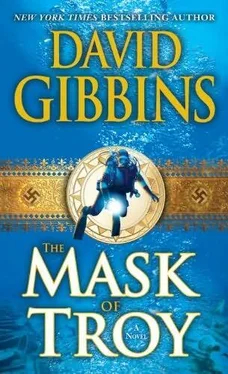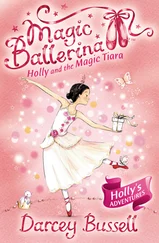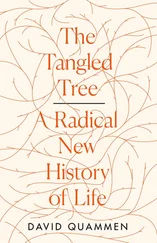David Gibbins - The Mask of Troy
Здесь есть возможность читать онлайн «David Gibbins - The Mask of Troy» весь текст электронной книги совершенно бесплатно (целиком полную версию без сокращений). В некоторых случаях можно слушать аудио, скачать через торрент в формате fb2 и присутствует краткое содержание. Жанр: Триллер, на английском языке. Описание произведения, (предисловие) а так же отзывы посетителей доступны на портале библиотеки ЛибКат.
- Название:The Mask of Troy
- Автор:
- Жанр:
- Год:неизвестен
- ISBN:нет данных
- Рейтинг книги:3 / 5. Голосов: 1
-
Избранное:Добавить в избранное
- Отзывы:
-
Ваша оценка:
- 60
- 1
- 2
- 3
- 4
- 5
The Mask of Troy: краткое содержание, описание и аннотация
Предлагаем к чтению аннотацию, описание, краткое содержание или предисловие (зависит от того, что написал сам автор книги «The Mask of Troy»). Если вы не нашли необходимую информацию о книге — напишите в комментариях, мы постараемся отыскать её.
The Mask of Troy — читать онлайн бесплатно полную книгу (весь текст) целиком
Ниже представлен текст книги, разбитый по страницам. Система сохранения места последней прочитанной страницы, позволяет с удобством читать онлайн бесплатно книгу «The Mask of Troy», без необходимости каждый раз заново искать на чём Вы остановились. Поставьте закладку, и сможете в любой момент перейти на страницу, на которой закончили чтение.
Интервал:
Закладка:
Dillen pulled an iPod from his pocket, clicked it and then passed it to Rebecca. ‘That’s only a small fragment of it, but you can see the letters. They’re separately spaced, careful, a little awkward, as if the scribe is not entirely familiar with the symbols, at pains to get it right. You see the letter A? It’s sideways, toppled over. That’s what really excited me. It’s the Phoenician letter A, the way it looked in the earliest version of the alphabet adopted by the Greeks. Archaeologists have found a few potsherds from the Greek Dark Age scratched with letters like this, but no other actual script of Greek this early.’
‘So what’s the date of the text?’
‘The iambic hexameter is Homeric in form, and that makes it at least eighth century BC. But I’ve always argued that the hexameter is much older than that, as old as the early Bronze Age, from the time of the first epic bards. The bards continued to use it through to the dawn of the classical era, when people began to write it down. Add to that the Phoenician letters, and we may be looking at something incredibly early.’
‘Dad says you’ve always thought Homer was earlier than the eighth century.’
Dillen nodded. ‘I believe there was indeed a Homer who wrote down the Iliad and the Odyssey as we have them. I say a Homer, not the Homer. I see Homer not as one genius, but as one in a line of gifted poets – consistently, extraordinarily gifted – who shaped and transmitted the poems, a lineage that may have ended about the eighth century BC with the advent of wider literacy and the demise of the bardic tradition, so that those later poets who emulated Homer had none of that spark. I see the Homeric bards, the earlier ones, almost as shamans or seers, maybe as a family line, possibly both men and women, with an inherited poetic genius nurtured from childhood. There are plenty of parallels in the bardic traditions of other cultures.’
‘The Trojan War took place about 1200 BC,’ Jeremy said, staring pensively at the arrows. ‘Civilization out here pretty well collapses. Invaders sweep down from the north. It’s a dark age, a time of destruction and hopelessness unparalleled in history. But then small communities hidden away in mountain refuges begin to rebuild. Iron technology takes over. The survivors pull away from the brink, and the classical age dawns. So where does this poem fit in to all that?’
Dillen replied quietly. ‘All of my instinct puts this text no later than 1000 BC. It may even be a century earlier. I can barely believe I’m suggesting it, but this text could have been written by a bard who actually witnessed the fall of Troy, who actually saw those arrows being fired, who felt the heat of that beacon fire burning into the night sky, above these very ramparts where we are now.’
Rebecca whistled, then looked at the bronze arrowheads embedded in the trench, and at the solidified mass of ash. ‘That’s awesome. Seriously awesome.’
‘And that,’ Jeremy announced, ‘is also a triumph of textual scholarship, because our radiocarbon result for the papyrus has just come through.’ He had been quickly checking his BlackBerry, and passed it to Dillen, who read the screen and broke into a smile. Jeremy turned to Rebecca. ‘The problem was getting a sample of the papyrus that wasn’t impregnated with later ink and glue from when it was reused, but the IMU dating lab seem to have done it.’
Dillen handed back the BlackBerry. His voice was quavering. ‘Eleven fifty BC, plus or minus seventy-five years. I knew it. I just knew I was reading poetry written in the Bronze Age.’
‘That’s so cool,’ Rebecca said, putting her hand on his shoulder. ‘Remember when you were my age, dreaming of finding something like that.’
Dillen looked at her, his eyes welling up. ‘I’m always that age. It’s what I told your dad. Never give up on those dreams.’
‘And one day they may come true,’ Rebecca said, leaning over and kissing him gently on the forehead.
‘One question,’ Jeremy said, putting away his BlackBerry. ‘The Ilioupersis. The destruction of Troy. That’s the biggest event in the whole Trojan epic cycle. Why do we only now have this text? Why is the destruction only hinted at in the Iliad and the Odyssey?’
Dillen took off his glasses and wiped his eyes, then put them back on again, swallowed hard and looked at Jeremy. ‘The Trojan cycle represents the end of the bardic tradition,’ he said. ‘It’s art mirroring history, myth mirroring reality. Before the Trojan War, the Bronze Age was a world of heroes and demigods, a world ruled by the gods, always fickle, often cruel, where contests between men were the contests of heroes, not the wholesale carnage of war. Epic poetry grew up around those contests: violent, bloody for sure, but noble and thrilling, part of everyday life. They existed in a world of peace and stability that allowed civilization to flourish, that didn’t eclipse it. But then something happened. Something calamitous, which overturned that world. The ambition of one man, perhaps, one king. The age of heroes and gods gave way to the age of men. Duels between heroes gave way to total war.’
‘And nobody wanted to hear about that,’ Rebecca murmured. ‘Not a good fireside story.’
Dillen stared at the fresco. ‘People seated at the feet of a bard want to hear an uplifting story. They want to hear about noble deeds, about chivalry, about violence and cruelty to be sure, but not about apocalypse. So the Iliad is about the time before darkness swept over the plain of Ilion, when the war was still a contest of heroes: Achilles and Hector, Ajax and Telemachus. But Homer knew of coming darkness. He knew what men could do. He hints at it, in the Iliad. And the audience knew. They had been part of it, the survivors, their parents, their grandparents. It was an unspoken truth, a common experience of all humanity, like the Holocaust.’
‘Maybe the truth was just too awful to contemplate,’ Rebecca said. ‘Maybe Homer was a seer, just as you said. Maybe he gazed over the Dardanelles and somehow saw the future horrors of war, that mankind would go to the brink again.’
Jeremy looked hard at Dillen. ‘So maybe when the Ilioupersis was written down, it was a private expression by a poet who knew he had to tell himself the truth. He puts it away, but then – almost by accident – it survives.’
‘How much more do you have to translate?’ Rebecca asked.
‘I’ve translated twenty-five out of three hundred and twelve lines. Another couple of weeks. Depending on the distractions of archaeology.’
‘Maybe then you’ll play that lyre,’ Jeremy said.
‘Speaking of archaeology,’ Rebecca said, looking at Dillen quizzically. ‘We know Dad wants to find something fabulous underwater. Some treasure from the Trojan War. What do you want to find?’
Dillen narrowed his eyes. ‘Well…’ He sat back, took out his pipe and tobacco, then saw Rebecca’s disapproving look and thought better of it. Instead he pointed the stem of the pipe at the painting. ‘Something more than images. I want to find words. Inscriptions. I want to find something in Greek, in Linear B. Something from the conquerors of this place.’
‘ Agamemnon was here,’ Jeremy murmured.
‘Mmm.’ Dillen put the pipe in the corner of his mouth and dry-sucked it, folding his arms over his chest and staring at the painting.
‘No,’ Rebecca said, shaking her head. ‘I mean, what do you really want to find? Dad said you had a session the other night in his cabin on Seaquest II. Drank whisky like a pair of old pirates. He said you both came up with your dream find. He’s going to tell me his after he comes up from the dive today. He said I could probably cajole yours out of you, because you’ll do anything for me.’
Читать дальшеИнтервал:
Закладка:
Похожие книги на «The Mask of Troy»
Представляем Вашему вниманию похожие книги на «The Mask of Troy» списком для выбора. Мы отобрали схожую по названию и смыслу литературу в надежде предоставить читателям больше вариантов отыскать новые, интересные, ещё непрочитанные произведения.
Обсуждение, отзывы о книге «The Mask of Troy» и просто собственные мнения читателей. Оставьте ваши комментарии, напишите, что Вы думаете о произведении, его смысле или главных героях. Укажите что конкретно понравилось, а что нет, и почему Вы так считаете.












